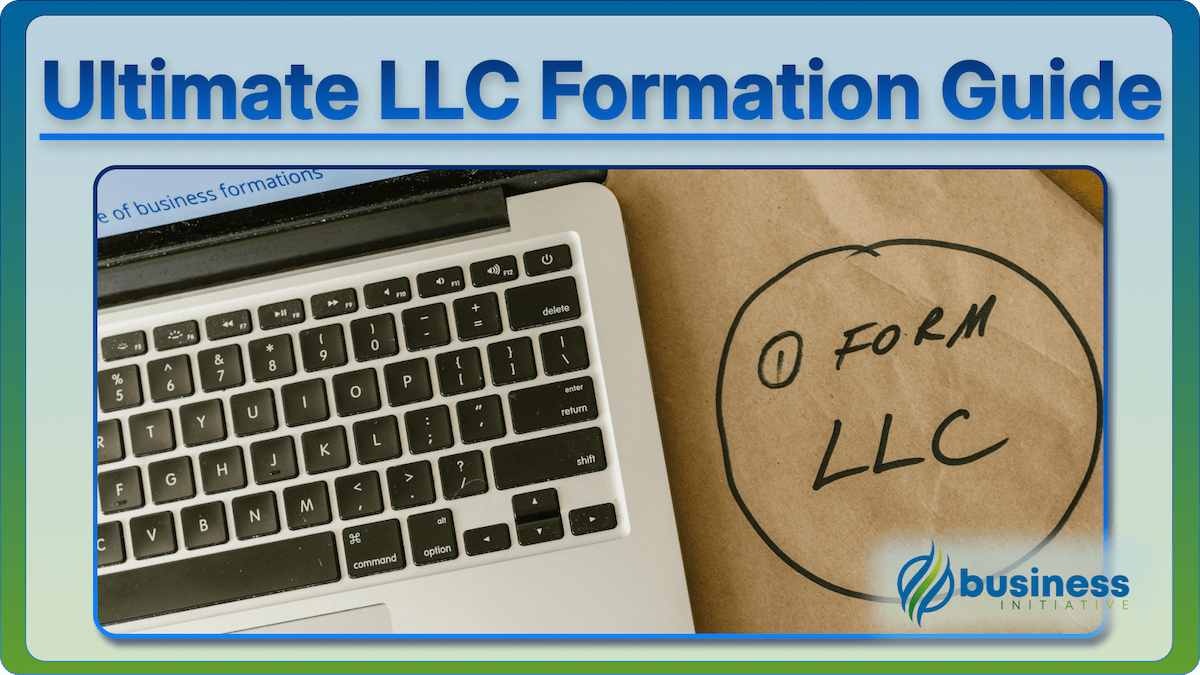You’re forming your business.
But you don’t know what it will cost. You don’t know what’s required. You don’t know how to budget.
Surprise costs hurt your business.
Unexpected fees. Missed requirements. Budget overruns.
This guide shows you how to budget.
Initial costs. Ongoing costs. First-year total. Your budget.
Read this. Plan your costs. Avoid surprises.
 Key Takeaways
Key Takeaways
- Initial formation costs include filing fees, publication requirements, registered agent setup, business licenses, and expedited processing if needed
- Ongoing costs include annual reports, franchise taxes, registered agent renewals, business license renewals, and compliance tracking
- First-year costs are higher than ongoing costs—you pay initial formation plus first-year ongoing requirements
- State requirements vary significantly—some states have publication requirements, franchise taxes, or other unique costs
- Plan for $500-$2,500+ in first-year costs depending on state, entity type, and service choices
 Table of Contents
Table of Contents

Why Budgeting Matters
Budgeting prevents surprises.
What happens if you don’t budget:
- Face unexpected fees
- Miss required payments
- Budget overruns
- Cash flow problems
What happens if you budget:
- Plan for all costs
- Avoid surprises
- Stay within budget
- Maintain cash flow
The reality: Budgeting is essential for business success.
Initial Formation Costs
These are the costs you pay upfront:
State Filing Fees
What it is:
- Fee to file formation documents
- Varies by state and entity type
- Required for all formations
Typical range: $50-$500+ depending on state
Pro tip: Filing fees are the base cost. Check your state’s requirements. See our true cost guide for state-specific costs.
Publication Requirements
What it is:
- Some states require publication
- Newspaper advertisements
- Proof of publication filing
Typical range: $0-$1,500+ depending on state
Pro tip: Publication is required in some states like New York. Factor this into your budget.

Registered Agent Setup
What it is:
- Registered agent service
- Required in all states
- Can be yourself or a service
Typical range:
- DIY: $0 (but uses your address)
- Service: $50-$300+ per year
Pro tip: Registered agent services provide privacy and compliance. See our registered agent guide for details.
Business Licenses
What it is:
- Local business licenses
- Industry-specific licenses
- Professional licenses
Typical range: $0-$500+ depending on location and industry
Pro tip: Business licenses vary by location and industry. Check local requirements.
Expedited Processing
What it is:
- Faster processing option
- Usually extra fee
- May be necessary
Typical range: $0-$500+ depending on state and speed
Pro tip: Expedited processing is almost always extra. Factor this into your budget if you need speed.
Ongoing Compliance Costs
These are the costs you pay annually:
Annual Reports
What it is:
- Annual filing requirement
- Required in most states
- Maintains good standing
Typical range: $0-$500+ per year depending on state
Pro tip: Annual reports are required in most states. Budget for these annually.
Franchise Taxes
What it is:
- Annual tax on entity
- Required in some states
- Based on entity type and revenue
Typical range: $0-$800+ per year depending on state and revenue
Pro tip: Franchise taxes vary by state. Some states don’t have them, others do.

Registered Agent Renewals
What it is:
- Annual registered agent service
- Required ongoing service
- Maintains compliance
Typical range: $50-$300+ per year
Pro tip: Registered agent services renew annually. Budget for ongoing costs.
Business License Renewals
What it is:
- Annual license renewals
- Local and industry licenses
- Required to operate
Typical range: $0-$500+ per year depending on location and industry
Pro tip: Business licenses renew annually. Factor these into your ongoing budget.
First-Year Total
Your first-year costs include:
Initial Formation
What’s included:
- State filing fees
- Publication requirements
- Registered agent setup
- Business licenses
- Expedited processing (if needed)
Typical range: $100-$2,000+ depending on state and choices
First-Year Ongoing
What’s included:
- Annual reports
- Franchise taxes
- Registered agent renewals
- Business license renewals
Typical range: $50-$1,000+ per year depending on state
Total First-Year Cost
What it includes:
- Initial formation + first-year ongoing
- All required fees and services
- Complete first-year budget
Typical range: $500-$2,500+ depending on state, entity type, and choices
Pro tip: First-year costs are higher because you pay initial formation plus first-year ongoing requirements. See our true cost guide for detailed breakdowns.

Budgeting Framework
Use this framework to budget your costs:
Step 1: List All Initial Costs
What to include:
- State filing fees
- Publication requirements
- Registered agent setup
- Business licenses
- Expedited processing (if needed)
Why it matters: Initial costs are your upfront investment.
Step 2: List All Ongoing Costs
What to include:
- Annual reports
- Franchise taxes
- Registered agent renewals
- Business license renewals
Why it matters: Ongoing costs continue every year.
Step 3: Calculate First-Year Total
What to calculate:
- Initial costs + first-year ongoing costs
- Total first-year expense
- Budget allocation
Why it matters: First-year total is your complete budget.
Step 4: Plan for Ongoing Years
What to plan:
- Annual ongoing costs
- Multi-year budget
- Cash flow planning
Why it matters: Ongoing costs continue beyond the first year.
Pro tip: Use this framework to create a complete budget. See our pricing guide for understanding costs.
Cost-Saving Tips
These tips help you save money:
Tip 1: Do It Yourself Where Possible
What it means:
- File formation yourself
- Act as your own registered agent (if privacy isn’t a concern)
- Handle compliance yourself
Savings: Can save hundreds on service fees
Trade-off: More time and effort required
Tip 2: Skip Expedited Processing
What it means:
- Use standard processing
- Plan ahead for timing
- Avoid rush fees
Savings: Can save $50-$500+
Trade-off: Slower processing times
Tip 3: Choose Lower-Cost States
What it means:
- Form in states with lower fees
- Avoid high-publication states
- Consider franchise tax states
Savings: Can save hundreds on fees
Trade-off: May not be best for your business
Tip 4: Bundle Services
What it means:
- Use providers that bundle services
- Get discounts for multiple services
- Consolidate providers
Savings: Can save on service fees
Trade-off: May limit flexibility
Pro tip: Balance cost savings with your needs. Sometimes paying more saves time and prevents problems.
Your Next Steps
Plan your budget. Avoid surprises. Stay on track.
This Week:
- Review this guide
- List all initial costs
- List all ongoing costs
- Calculate first-year total
This Month:
- Create detailed budget
- Allocate funds
- Plan for ongoing costs
- Set up payment reminders
Going Forward:
- Track actual costs
- Compare to budget
- Adjust as needed
- Plan for future years
Need help? Check out our true cost guide for detailed breakdowns, our pricing guide for understanding costs, and our pricing framework guide for comparing providers.
Stay informed about business strategies and tools by following us on X (Twitter) and signing up for The Initiative Newsletter.
FAQs - Frequently Asked Questions About Budgeting Your First Year of Legal & Compliance Costs (Without Surprises)

How much should I budget for total first-year legal and compliance costs?
Plan for $500 to $2,500 or more in first-year costs depending on your state, entity type, and service choices.
Learn More...
Initial formation costs typically range from $100 to $2,000+ and include state filing fees, publication requirements, registered agent setup, business licenses, and expedited processing.
First-year ongoing costs range from $50 to $1,000+ and include annual reports, franchise taxes, registered agent renewals, and business license renewals.
First-year costs are higher than subsequent years because you pay both initial formation and first-year ongoing requirements.
What are the typical state filing fees for business formation?
State filing fees typically range from $50 to $500 or more, varying by state and entity type.
Learn More...
Filing fees are the base cost of forming your business entity and are required in all states.
Some states like New York also have publication requirements that can add $0 to $1,500+ to your formation costs.
Check your specific state's requirements, as costs vary significantly between jurisdictions.
Should I use a registered agent service or be my own registered agent?
DIY costs $0 but uses your personal address, while a registered agent service costs $50 to $300+ per year and provides privacy and compliance support.
Learn More...
Being your own registered agent is free but exposes your home address in public records and requires you to be available during business hours to receive legal documents.
Professional registered agent services provide privacy protection, compliance monitoring, and ensure you never miss critical legal notices.
The service renews annually, so budget for this as an ongoing cost each year.
What ongoing compliance costs should I budget for after formation?
Budget for annual reports ($0-$500+), franchise taxes ($0-$800+), registered agent renewals ($50-$300+), and business license renewals ($0-$500+) each year.
Learn More...
Annual reports are required in most states to maintain your good standing and vary in cost by state.
Franchise taxes apply in some states and are based on your entity type and revenue.
Business license renewals depend on your location and industry, and these recur every year you operate.
How can I save money on formation and compliance costs?
File formation yourself, skip expedited processing, choose lower-cost states, and bundle services from a single provider.
Learn More...
Filing formation documents yourself can save hundreds on service fees, though it requires more time and effort.
Skipping expedited processing saves $50 to $500+ but means waiting longer for approval, so plan ahead for timing.
Some states have significantly lower fees and no publication requirements, but forming in a different state may not be best for your actual business location.
Bundling services from one provider can get you discounts but may limit flexibility to switch later.
What is the four-step budgeting framework for first-year costs?
List all initial costs, list all ongoing costs, calculate your first-year total, then plan for ongoing years.
Learn More...
Step 1: List initial costs including state filing fees, publication requirements, registered agent setup, business licenses, and any expedited processing fees.
Step 2: List ongoing costs including annual reports, franchise taxes, registered agent renewals, and business license renewals.
Step 3: Add initial costs plus first-year ongoing costs for your complete first-year budget.
Step 4: Plan multi-year budgets using ongoing costs for cash flow planning beyond year one.
Sources & Additional Information
This guide provides general information about budgeting formation and compliance costs. Your specific situation may require different costs.
For true formation costs, see our True Cost Guide.
For pricing understanding, see our Pricing Guide.
For pricing comparison, see our Pricing Framework Guide.
Consult with professionals for advice specific to your situation.


